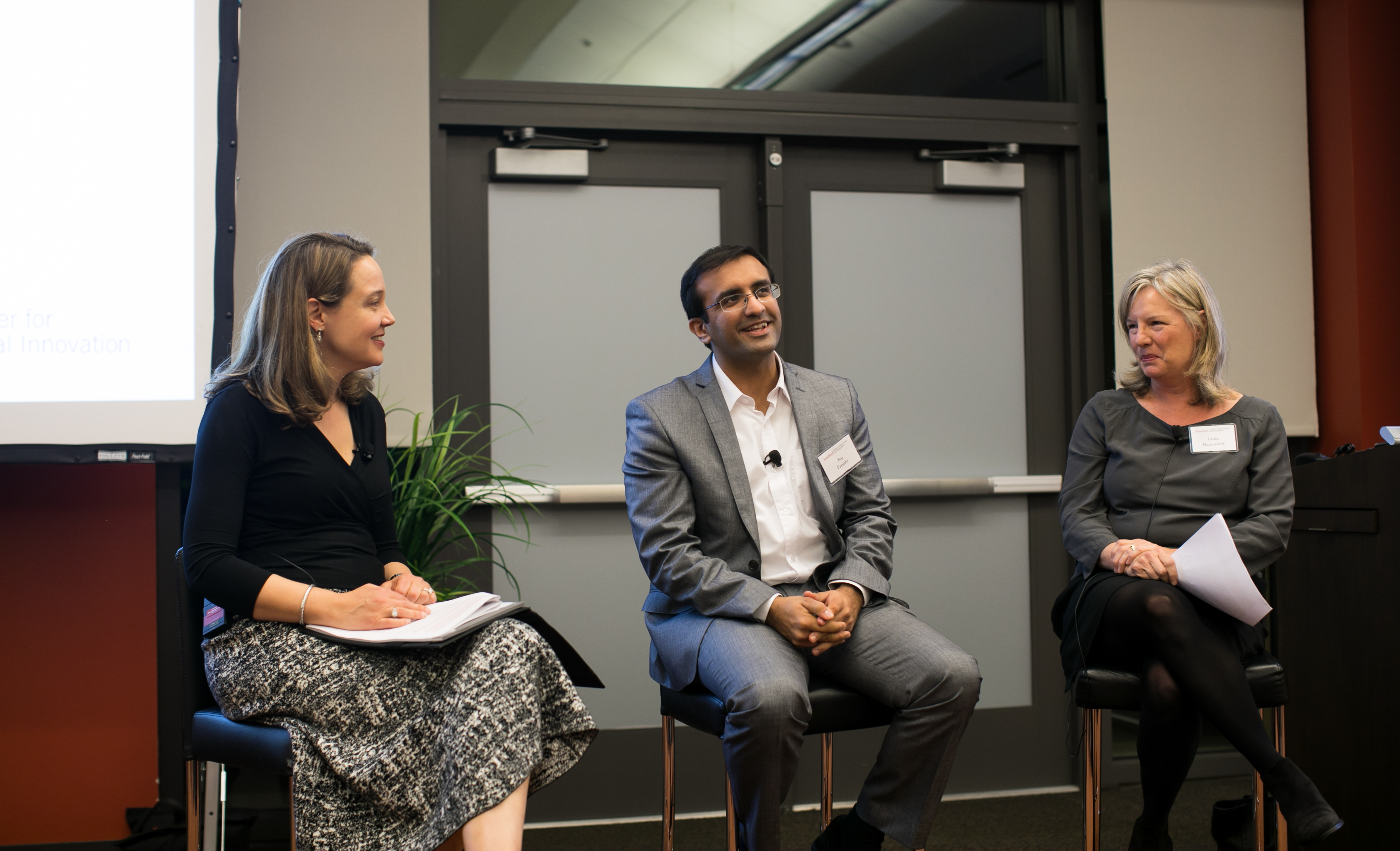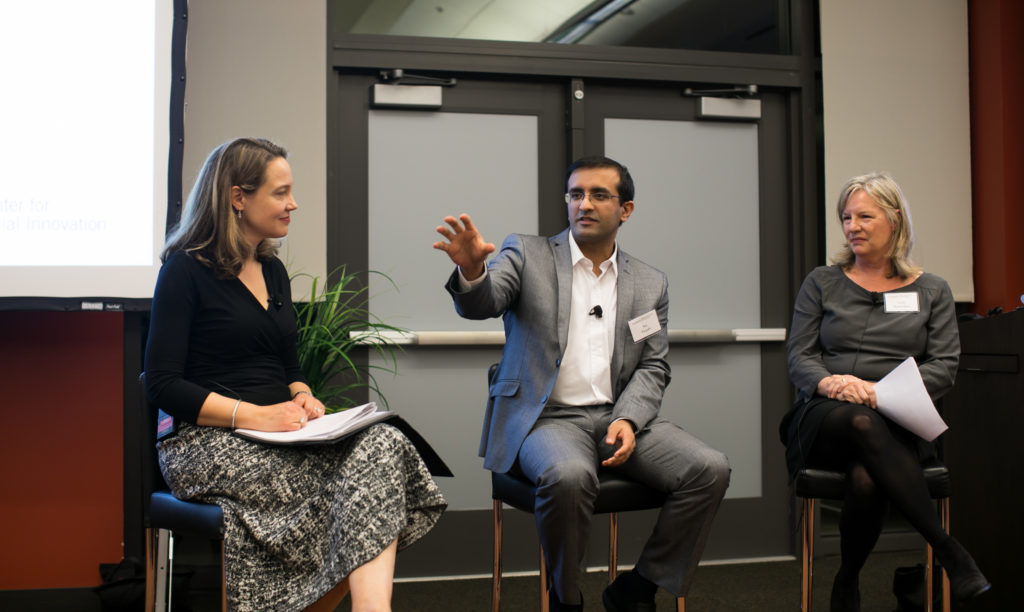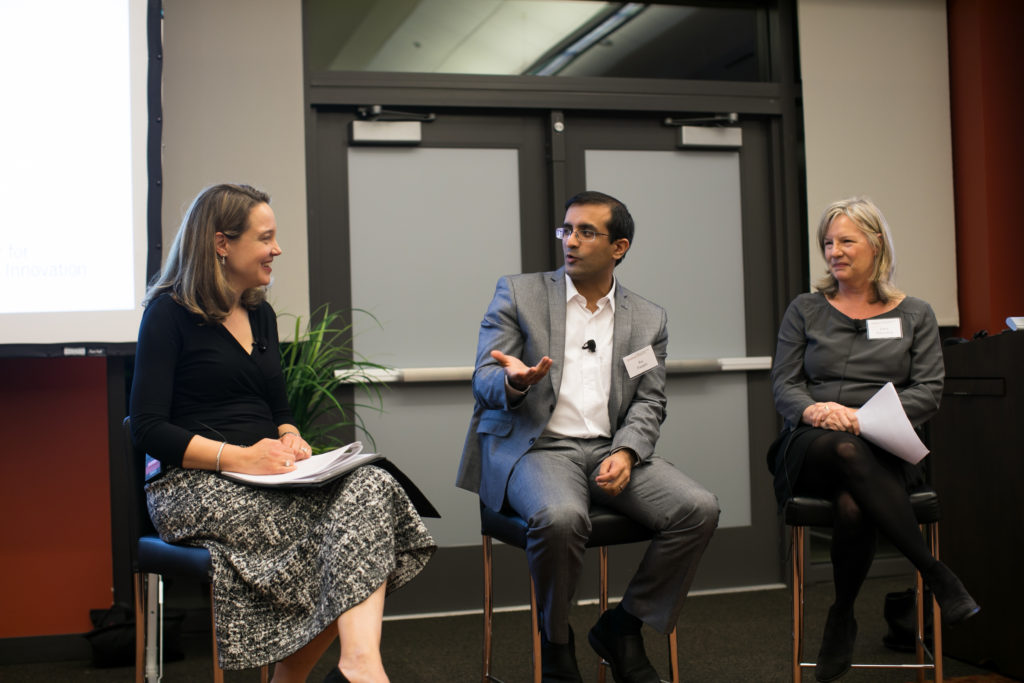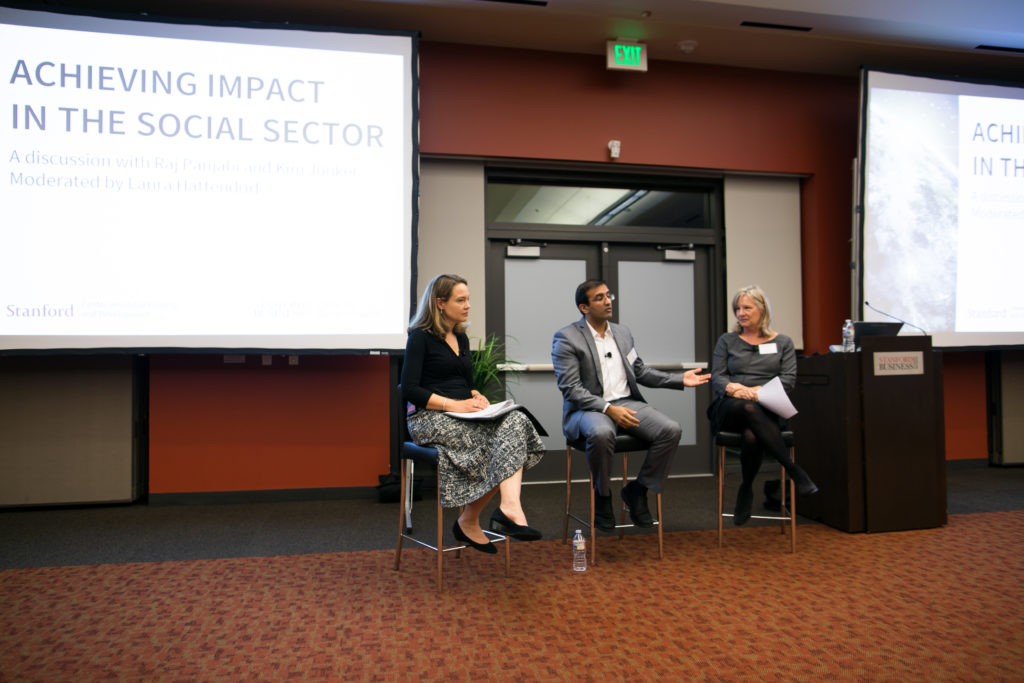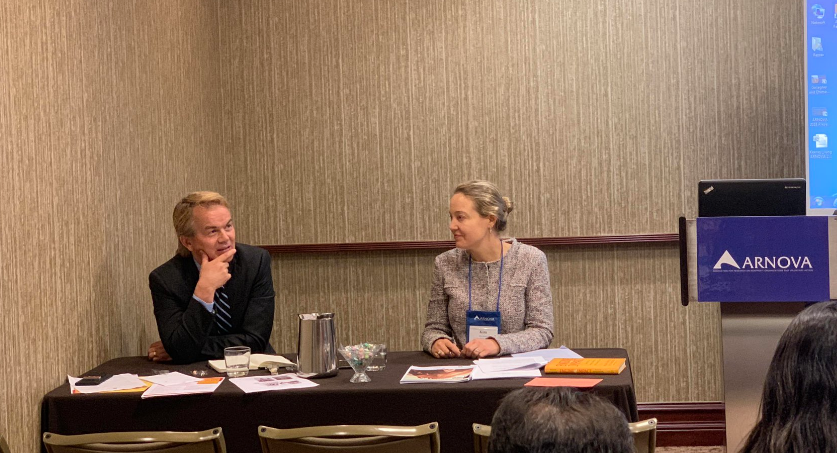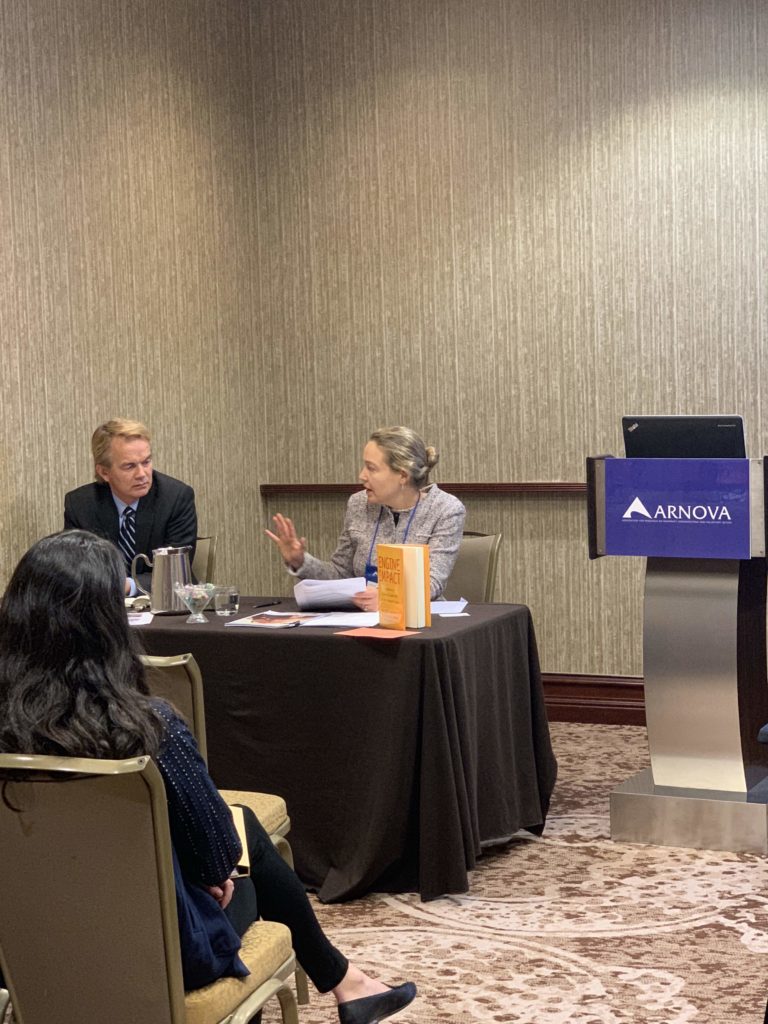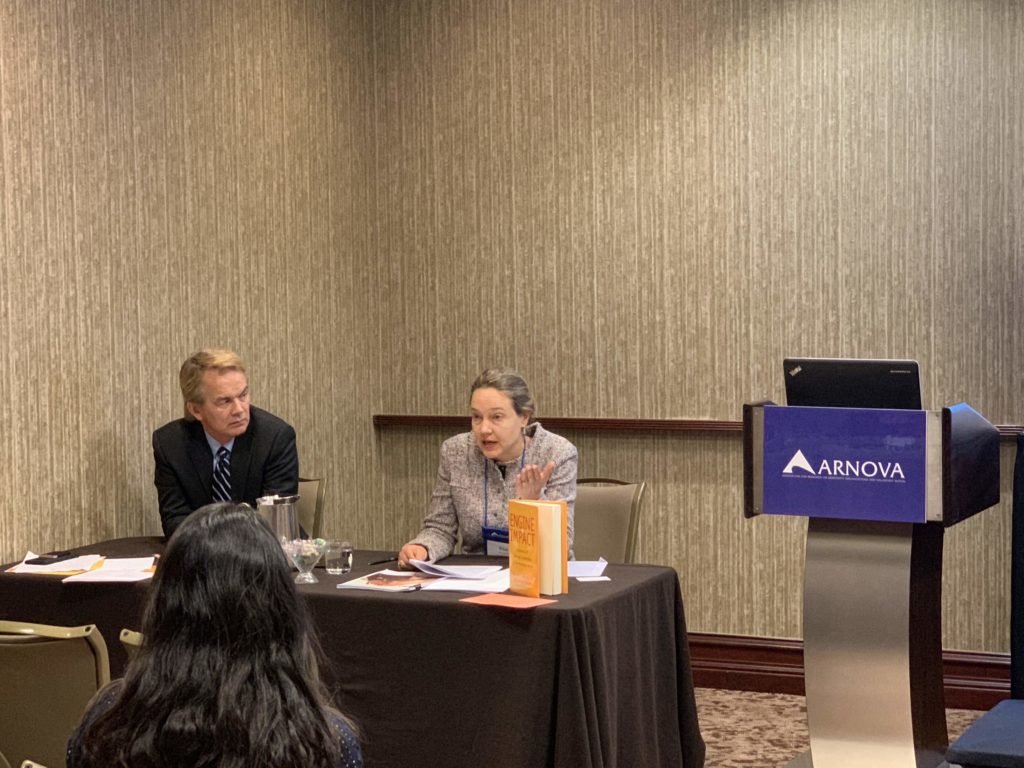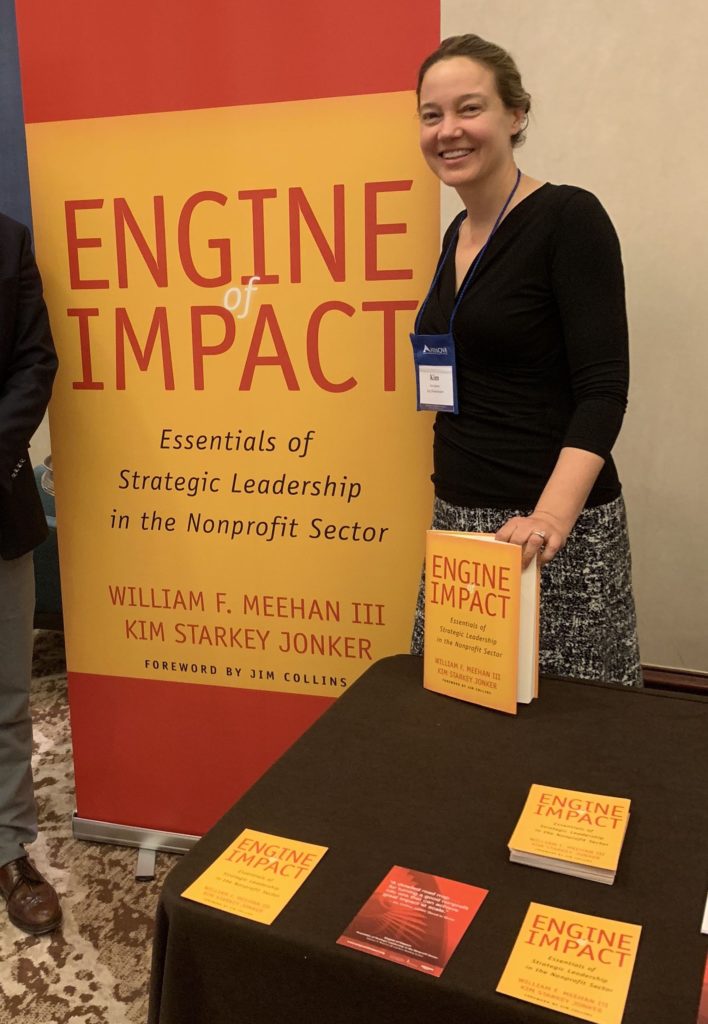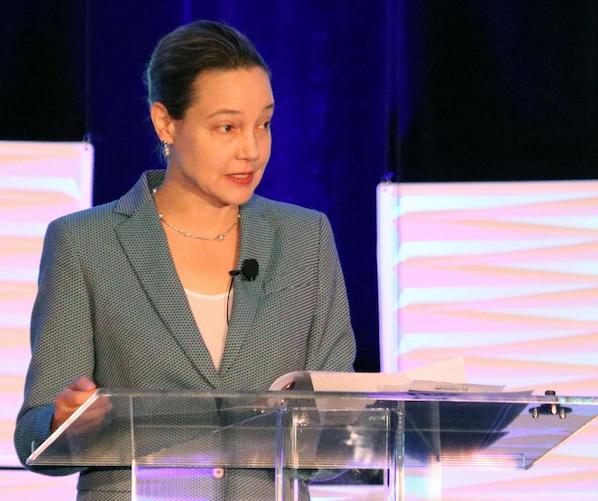Driving Nonprofit Impact With Dollars, Choices
Driving Nonprofit Impact With Dollars, Choices
According to the Stanford Survey on Leadership and Management in the Nonprofit Sector—a study that we conducted while developing our book Engine of Impact—more than 80% of nonprofits struggle with at least one core leadership and management issue. More than half of nonprofits, for example, struggle to perform well in the areas of board governance, fundraising, and impact evaluation.
While donors may feel powerless when facing this troubling data, we argue that the nonprofit sector is poised to become more effective — if donors can optimize their power. Donors present a huge potential force in not only supporting but leading the nonprofit sector. By voting with their checkbooks, donors can exert the power to encourage, even demand, that nonprofits address and overcome core leadership and management challenges.
Read our Forbes column here to learn more about how donors can best optimize their power today.
How Well Does Your Nonprofit Board Measure Up?
What distinguishes high-impact nonprofit organizations from their good-enough (or worse) counterparts? On the basis of our combined 60 years as students, leaders, and advisors of organizations in the nonprofit sector, we developed a model for analyzing the essential elements that define excellence in the sector.
We have discussed these “essentials,” and the way that most nonprofits struggle to master them, in a number of our Forbes articles. We also describe them at length in our book, Engine of Impact: Essentials of Strategic Leadership in the Nonprofit Sector. There are seven elements in our model: mission, strategy, impact evaluation, insight and courage, organization and talent, funding, and board governance.
In listing these elements, we purposely designate board governance as the final item in the series. It is, in effect, the capstone element that brings all of the other elements together—the one that keeps an organization moving forward while also keeping it on track.
Read more about the critical importance of board governance in our Forbes column here.
A Better Approach To Winning: Lessons From The Positive Coaching Alliance
At first glance, the field of youth sports coaching doesn’t seem like a promising arena for achieving significant social impact.
But Jim Thompson arrived at a different view. When he was a young professional—and, not incidentally, a young father—he had a life-altering epiphany: The wrong kind of coaching takes a huge toll on children, whereas the best kind of coaching has a positive and often transformative effect on them. That revelation led Thompson to create Positive Coaching Alliance (PCA), a nonprofit organization that has reached more than 8.6 million young athletes since its founding in 1998.
During his two-decade-long journey to create and build PCA, Thompson has exemplified the practice of strategic leadership—starting with his ability to establish a clear mission on the basis of sound insight. (In our book, Engine of Impact, we explore seven elements of strategic leadership, including mission and insight and courage.)
In our Forbes column here, drawing from our in-depth conversation with Thompson, are several lessons that have emerged from that journey.
To Lead Well, Think Hard About The Legacy That You’ll Leave
In 2018, we interviewed three highly accomplished social sector leaders who had recently stepped down from positions in which they had achieved substantial impact. Two of them—Sally Osberg, of Skoll Foundation, and Matt Bannick, of Omidyar Network—had each spent more than a decade at the helm of a major funder that has emphasized innovative approaches to pursuing impact in the sector. The third leader, Chris Dawes, served as president and CEO of Lucile Packard Children’s Hospital (known as Packard Children’s), and in that role he mastered the complex business of overseeing a top-tier medical institution.
Each of these leaders, in short, left behind a powerful engine of impact—a vehicle of positive change that will outlast their tenure in the organizational driver’s seat. In our conversations with them, they offered lessons on the principles and practices that enabled them to build, tune, and fuel their particular engine of impact.
You can find those insights in our latest Forbes column here.
Honing in on a big idea: helpful learnings from Last Mile Health
Stanford University recently hosted a terrific Engine of Impact event, featuring inspiring lessons from the high-impact nonprofit, Last Mile Health. On November 27th, Engine of Impact co-author and King Philanthropies President and CEO Kim Starkey Jonker and Last Mile Health cofounder and CEO Raj Panjabi took part in an exciting discussion on “Achieving Impact in the Social Sector”, co-hosted by the Stanford King Center for Global Development and the Center for Social Innovation at the Stanford Graduate School of Business, and moderated by Laura Hattendorf of the Mulago Foundation.
To an audience comprised of students, faculty, Stanford alumni, and social sector leaders, Panjabi shared his personal lessons of leadership and learnings so far at Last Mile Health. Lauding the importance of themes of “focus, focus, focus” in Engine of Impact’s Chapter 1, “The Primacy of Mission”, Panjabi stressed the importance of focus in a nonprofit’s activities (versus breadth and diversification). Panjabi shared that the early years of Last Mile Health looked very different from what the organization is today. Initially, Last Mile Health’s interventions were broad, including agriculture, sewing & more! But by honing in on a single concept – professionalizing community health workers – Last Mile Health has achieved massive impact. It was featured as an exemplary organization in Engine of Impact, cited for its current clear and focused mission. Last Mile Health was also featured in Engine of Impact for its impressive ability to scale.
Photo courtesy Holly Hernandez, Stanford King Center for Global Development
New Engine of Impact review in Voluntas
Engine of Impact received a highly favorable recent review in Voluntas: International Journal of Voluntary and Nonprofit Organizations 29.5, 2018. “[This book] has the potential to revolutionize leadership for all nonprofit stakeholders, and thus increase impact for the clients and communities these nonprofit organizations serve,” commented Voluntas reviewer Anne C. Briggs. The review underscored that “William F. Meehan III and Kim Starkey Jonker’s decades of nonprofit and for-profit experience, primarily focused on optimizing organizational performance, creates a strong base for creating a new strategic leadership model for the nonprofit sector”.
The full text of the review can be found at this link: https://link.springer.com/article/10.1007/s11266-018-0022-y
Strategy Is All About What You Say NO To
On November 15th, Kim Starkey Jonker, President and CEO of King Philanthropies, and Tim Hanstad, CEO of the Chandler Foundation and cofounder of Landesa, led a discussion at the ARNOVA (Association for Research on Nonprofit Organizations and Voluntary Organizations) Annual Conference in Austin, TX. Kim shared insights and themes from Engine of Impact, with Landesa as a case example of an organization that has mastered so many of the essentials of strategic leadership. Audience members were keen to ask Hanstad, who just stepped down after 32 years at the helm of Landesa, about the challenges posed and lessons he’d learned co-founding a small organization that went on to have incredible impact at scale. “Strategy is all about what you say no to,” said Hanstad. He shared that his team’s commitment to Landesa’s focused mission led the Landesa team to turn down enormous sums of grant money that would have led the organization astray.
Kim Starkey Jonker delivers keynote at Philanthropy Forward 2018
Philanthropy Forward hosted its annual conference in Columbus, Ohio, October 23-24th, 2018. Kim Starkey Jonker gave the final keynote address to wrap up the conference, offering insights from her book, Engine of Impact: Essentials of Strategic Leadership in the Nonprofit Sector.
Kim shared that with strong and focused mission, strategy, impact evaluation, insight and courage, nonprofits can run an efficient, effective impact engine, and by excelling in the areas of funding, talent and board governance, they can sustain the fuel to scale it.
“Achieving Extraordinary Results in the Social Sector” Kim Starkey Jonker speaks at the University of Wisconsin
On Monday, October 22nd, the Willis Jones Leadership Center at the University of Wisconsin hosted an event with Kim Starkey Jonker and Drew Kugler about what exactly it takes to excel in the social sector and non-profit world.
Kim Starkey Jonker, co-author of Engine of Impact: Essentials of Strategic Leadership in the Nonprofit Sector shared the latest insights from her research, teaching, and work leading a foundation dedicated to alleviating extreme poverty.
Kim was joined in conversation by Drew Kugler, who for the past 35 years, has advised leaders and teams around the world on the challenging issues of leading and collaborating through change.
Equipping Leaders To Optimize Their Impact: An Interview With Bill Meehan And Kim Starkey Jonker by Ashoka
Ashoka believes that there is nothing more powerful than a new idea in the hands of a social entrepreneur. Social entrepreneurs are relentless team-builders and problem-solvers who set new norms in their fields of work.
Ashoka was featured in Bill Meehan and Kim Starkey Jonker’s book, Engine of Impact, and its founder, Bill Drayton, was saluted for his visionary leadership as well as his insight and courage.
This interview of Meehan and Starkey Jonker, conducted by Ashoka, explores two of the many questions posed by the authors in their book, Engine of Impact: Essentials of Strategic Leadership in the Nonprofit Sector. Read the full interview here to learn more about equipping leaders for this new era of impact.
Subscribe to receive updates on new content




